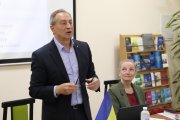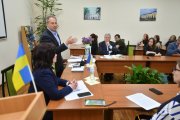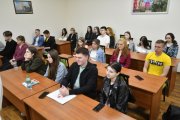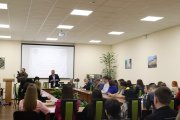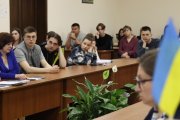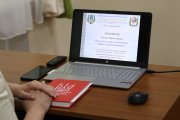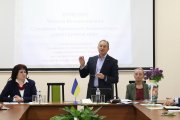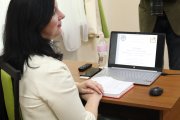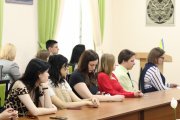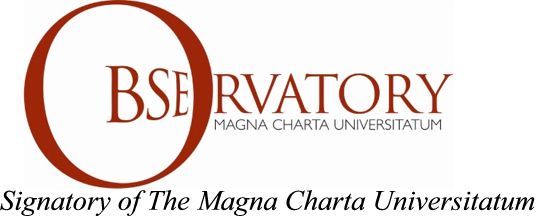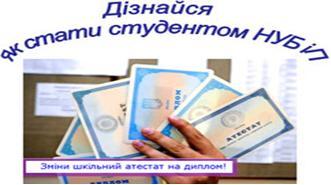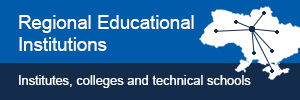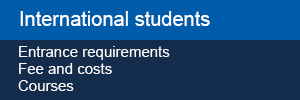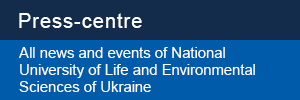The department of philosophy and international communication held a scientific and practical seminar "Historical lessons of the Ukrainian state by Pavlo Skoropadsky"
I say: "No matter how it turns out, Ukraine will be in one form or another.
You can't make the river flow back"
P. Skoropadsky
Our tomorrow depends on today, and right now we must not forget, but study, rethink our history, destroy myths, and learn the lessons of the past. The main lesson that we must learn is that we must do everything possible to ensure that the Ukrainian statehood does not disappear from the invasion of the invaders. And now it is important to honor those Ukrainian heroes, Ukrainian politicians who created the foundations of Ukrainian statehood at the beginning of the twentieth century, who even then showed that Ukraine should be a democratic country, understood that Ukraine unites people of different nationalities, supported Ukrainian culture and science. And our task is to honor them with dignity.
To 150th anniversary of the last Hetman of Ukraine and 125th anniversary of NULES of Ukraine, considering the importance of the individuality of Pavlo Skoropadsky and historical lessons of the development of the Ukrainian state, the formation of young scientists: students, undergraduates and postgraduates, national and cultural ideas, the education of the younger generation based on the values of ukrainocentrism and the spirit of patriotism, on the basis of the department of philosophy and international communication of the faculty of humanities and pedagogy of NULES of Ukraine the International scientific and practical seminar "Historical lessons of the Ukrainian state by Pavlo Skoropadsky" to popularize the figure of an outstanding Ukrainian state, military, political and public figure, was held .


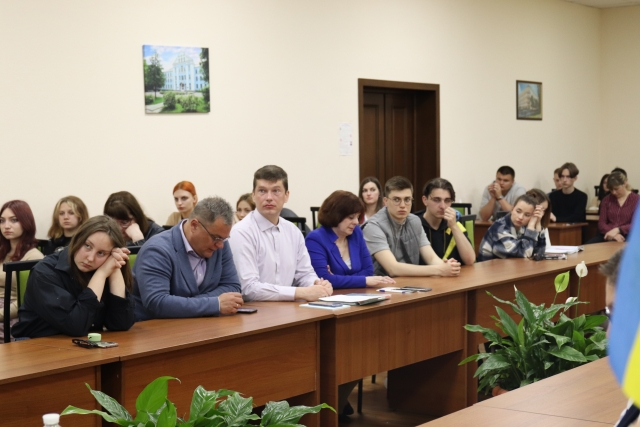
The dean of the faculty of humanities and pedagogy Inna Savytska, addressed the participants of the seminar with a welcoming speech, and noted that the existence of the Hetmanate was filled with an extremely intensive and fruitful process of Ukrainian state creation. It covered all areas of social life ‒ from foreign politics and military construction, the creation of a state administration or land reform to the opening of Ukrainian universities and the National Academy of Sciences, the development of Ukrainian schools. Pavlo Skoropadsky proved to be a creative political figure who managed to deploy the construction of the Ukrainian state in an extremely complex and contradictory situation: it required clear and concrete actions in the creation of diverse and numerous state institutions.
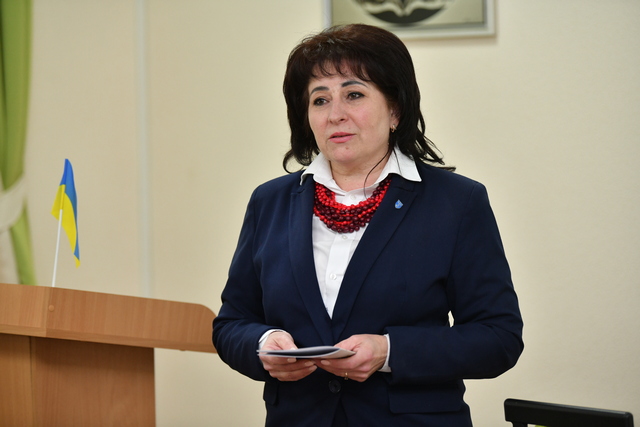
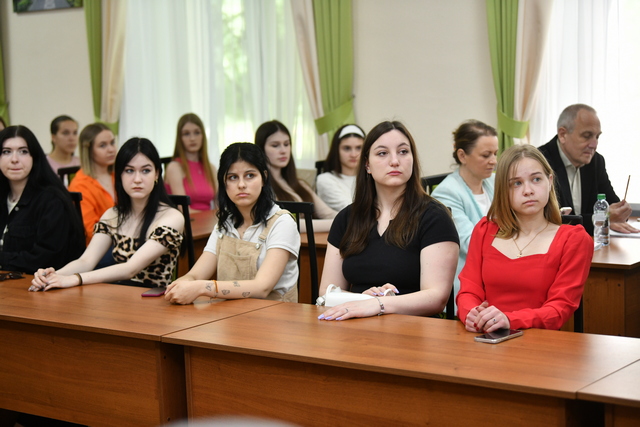


The work of the scientific and practical seminar, which was held off line, was started by the initiator and moderator of the event, chairman of the Supervisory Board of NULES of Ukraine, professor of the department of philosophy and international communication Mykola Tomenko. He made a presentation "Creation of the Ukrainian Academy of Sciences: ancient and modern myths" in which he noted that Ukrainian historians ambiguously assess the role of Hetman Skoropadsky in the history of Ukraine. Some point to the relatively stable life of Ukraine from April to December 1918, the normalization of the economy, the launch of Ukrainian schools, theater, universities and the Academy of Sciences. Others criticize his policies, the fact that the Hetman's power was partly based on the occupation forces of Germany and Austria-Hungary. Therefore, the task of modern scientists: historians, political scientists, lawyers, philosophers, cultural scientists is not only to popularize the figure of Pavel Skoropadsky, but also to debunk the myths with which he is associated.
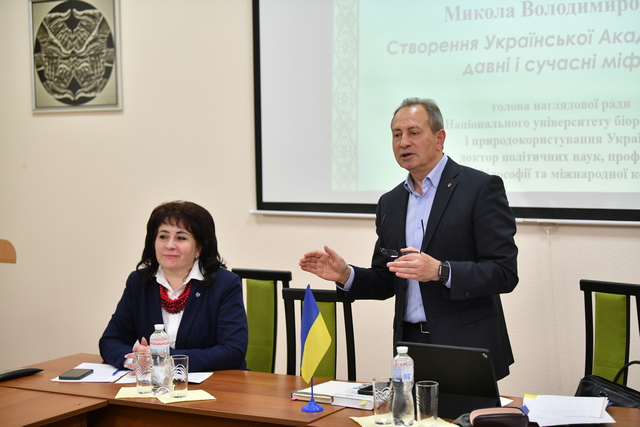
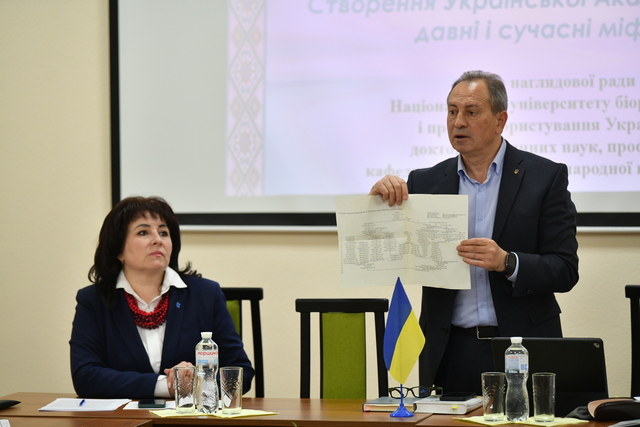
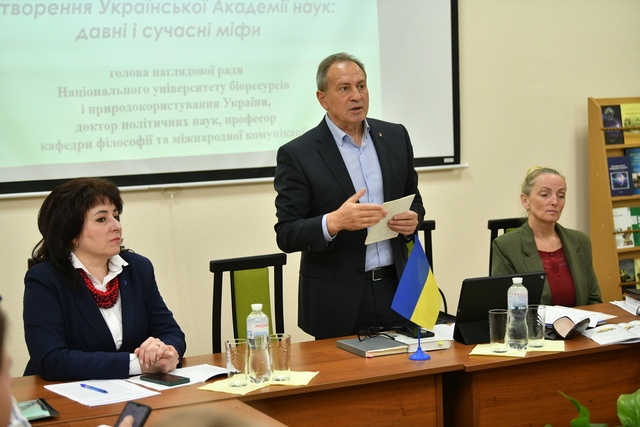
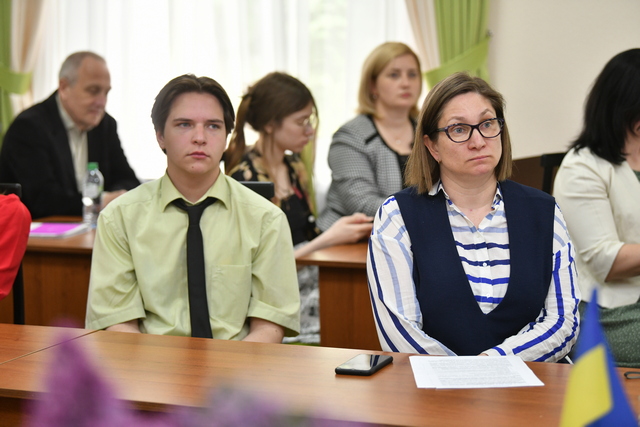
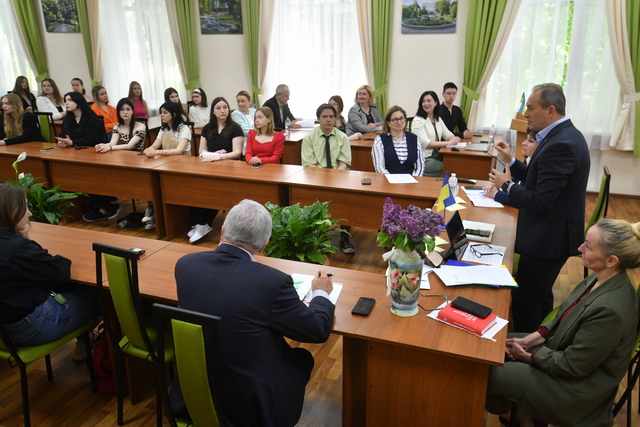
In his report "Historical and legal foundations of the Ukrainian state" director of Educational and Scientific Institute of continuing education and tourism ofNULES of Ukraine, professor Ivan Hrytsenkodescribed the legal basis of the activity of the Ukrainian state of Pavlo Skoropadsky. Written by the Hetman at the end of 1918, the memoirs provide a good basis for reflection for modern Ukrainians. In them, Pavlo Skoropadsky outlined his vision on a number of key problems of the development of Ukraine, which even now seem relevant.

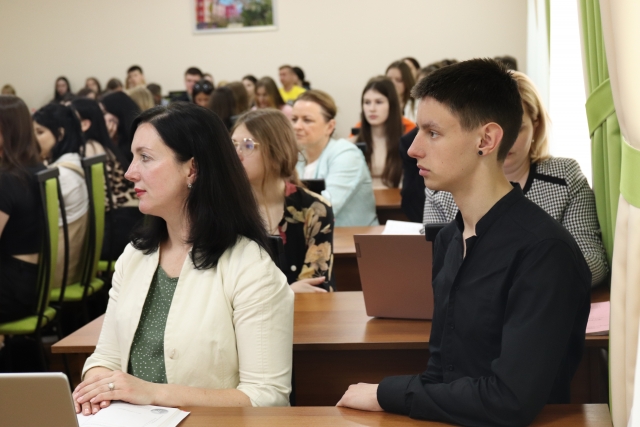
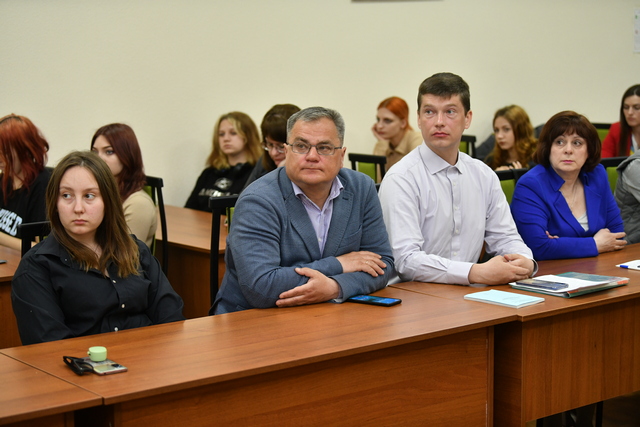
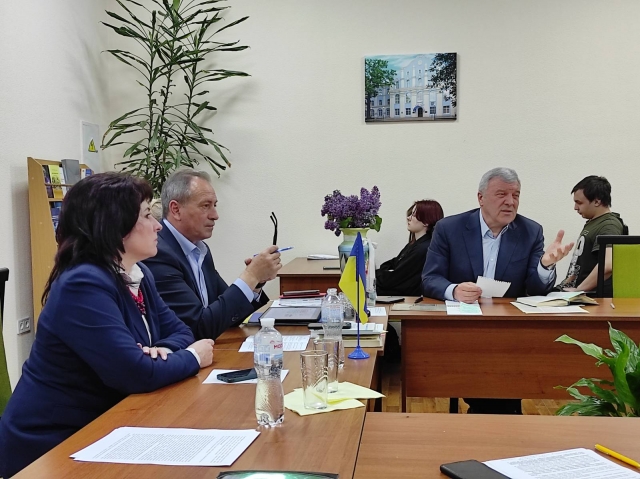
Political support to the hetmanate of Pavlo Skoropadsky was defined in the report of Olena Lyubovets, professor of the department of international relations and social sciences ofNULES of Ukraine.
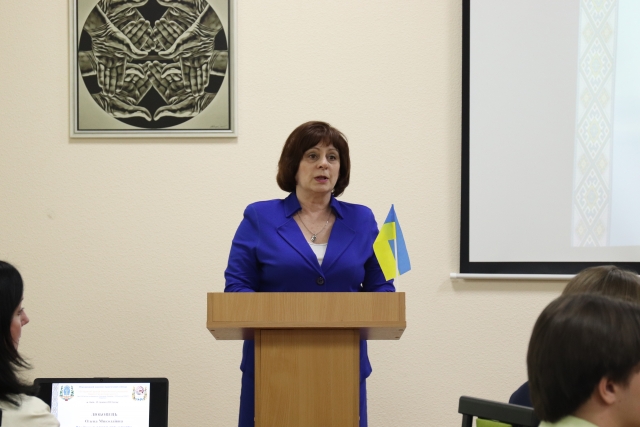
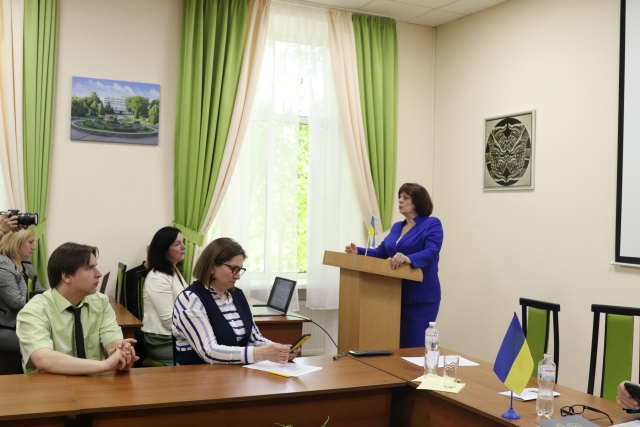
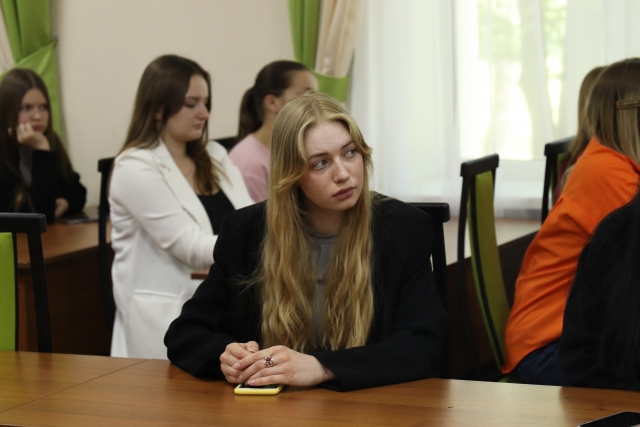
A guest from Taras Shevchenko National University of Kyiv Pavlo Hay-Nyzhnyk, Ukrainian historian, poet, public and political figure, doctor of historical sciences was invited to the seminar. In addition to making a report on the socio-political activities of Pavlo Skoropadsky. The seminar hosted a presentation of the author's scientific heritage ‒ publication "Ukrainian national conservatism: Hetman's movement".



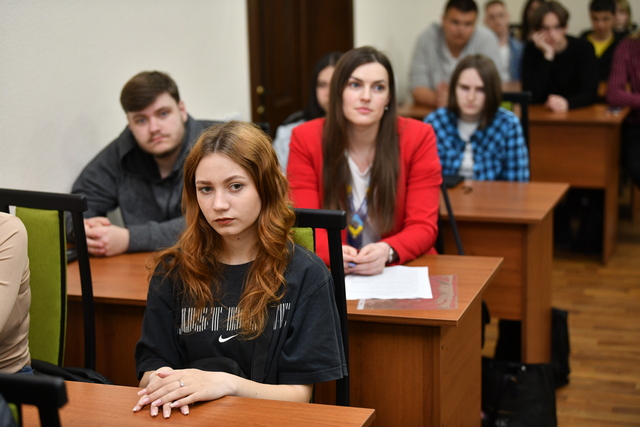
In his report "The significance of Pavlo Skoropadsky's state activity: a philosophical aspect" associate professor of the department of philosophy and international communication of NULES of Ukraine Svitlana Heiko noted that the complex of state measures of the Hetman became the real material that allowed the leader of Ukrainian conservatism Vyacheslav Lypynsky to create a political treatise "Letters to brothers-farmers" and equip Ukrainians with theoretical and practical tools of state creation.

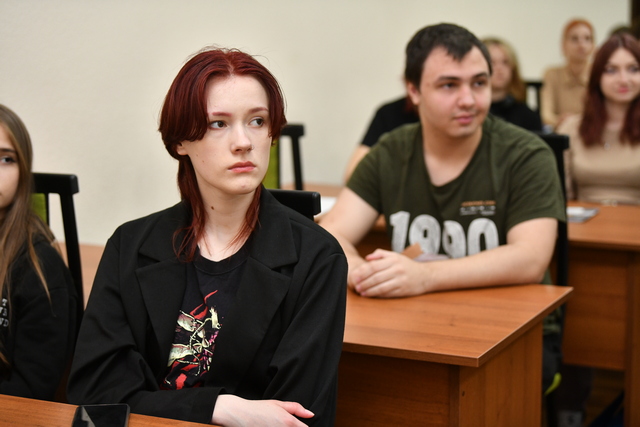
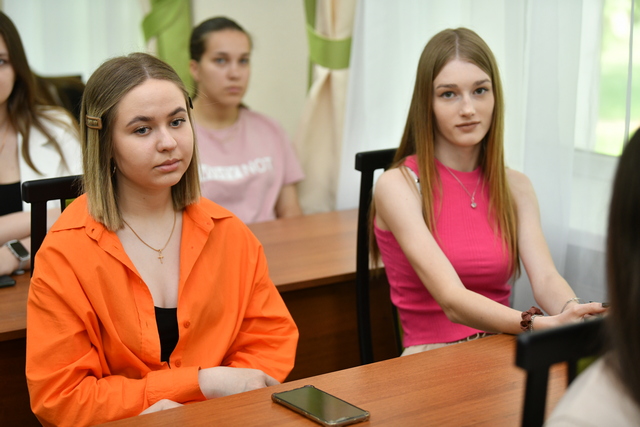
Associate professor of the department of international relations and social sciences Bohdan Hrushetsky in his report "Crimean question" in Ukrainian politics (1917-1918)" revealed the peculiarities of solving the Crimean problem in the activities of the Ukrainian governments of 1917-1918. As he noted, during the end of 1917 – beginning of 1918, the policy towards the Crimean peninsula underwent a radical transformation – from supporting the idea of developing a separate Crimean Tatar autonomy from Ukraine to implementing the strategy of including Crimea in Ukraine. The government of the Hetman era continued this course, actively applying economic and diplomatic methods. Unfortunately, it was not possible to implement this document in practice at that time due to threatening external and domestic political circumstances, and Crimea returned to Ukraine in 1954.
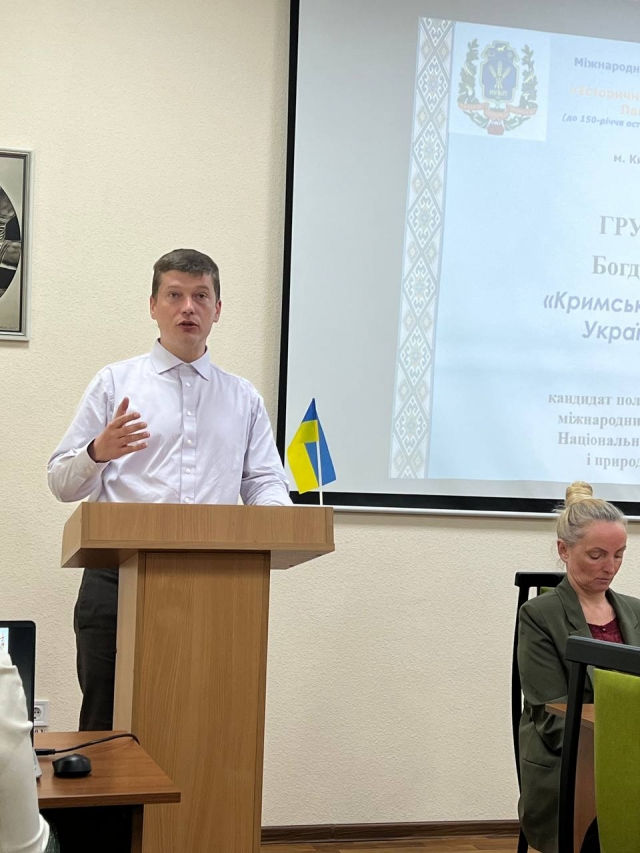
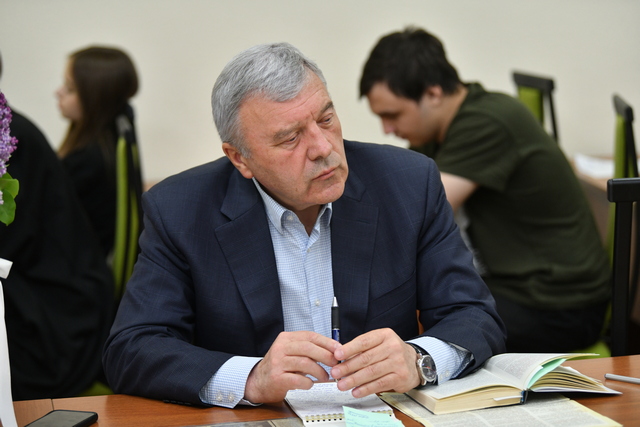

Pavlo Skoropadsky advocated the gradual Ukrainization of all spheres of life, in particular in culture. This issue was discussed in the report "National and cultural development in Ukraine during the Hetman's time", which was represented by a young scientist, lecturer ofthe department of cultural studies ofNULES of Ukraine Vladyslava Chaika.

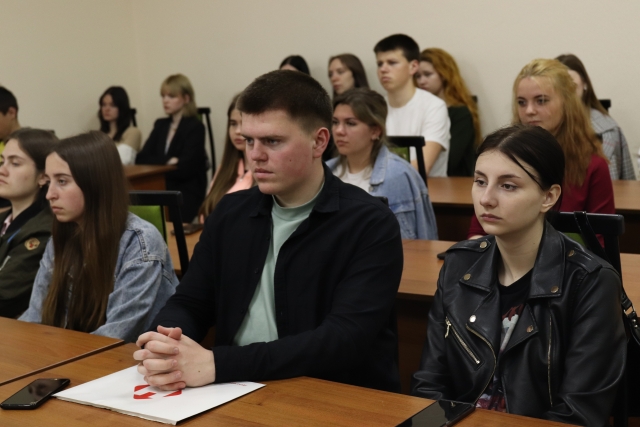

Our scientific and practical seminar has become a platform for public discussion, open discussion and exchange of opinions among young people. Speakers were students of the specialty "Journalism" Tetiana Petruk, Anna Bulka, Illya Khatsko, Oleh Korzhuk and others. They told about the religious and ecclesiastical life of the Ukrainian state under the hetmanate of P. Skoropadsky in the plane of state-church relations and about the figure of the Hetman himself from the point of view of a modern researcher.

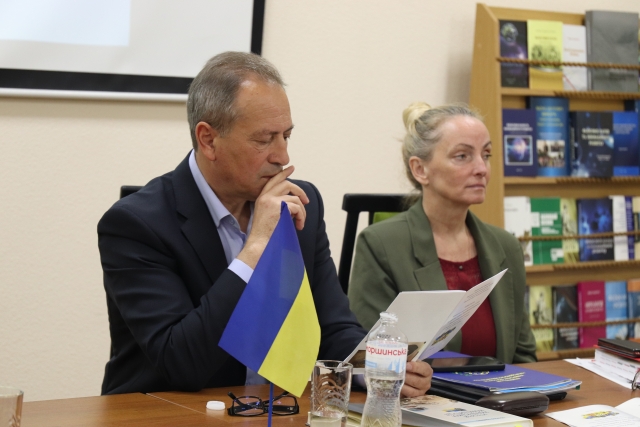
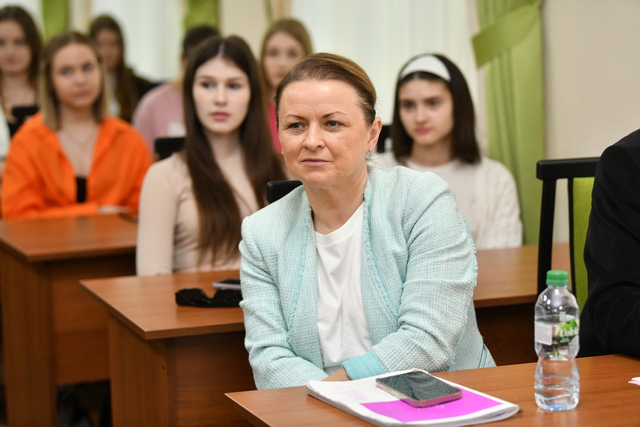
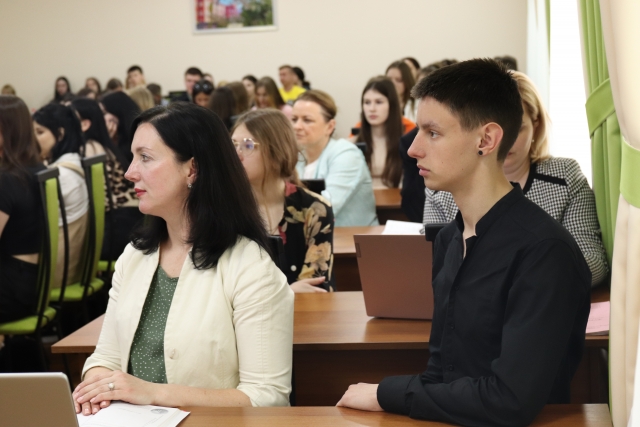

The seminar was completed by the head of the department of philosophy and international communication Valentyna Kultenko, encouraging everyone to remember our history, protect our culture, traditions, and language.

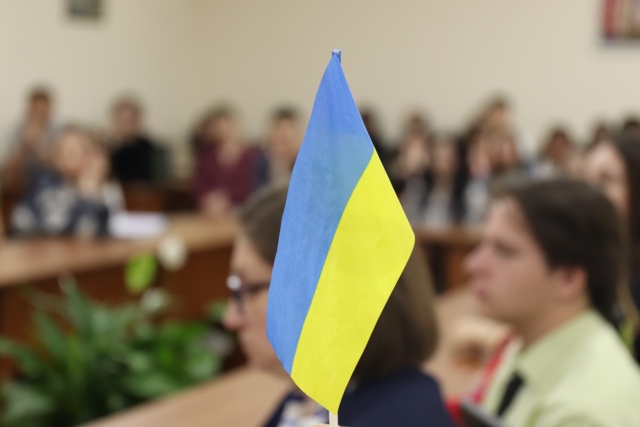
Let's win! Glory To Ukraine! Glory To The Heroes!
Svitlana Heiko,
associate professor of the department of philosophy and international communication
